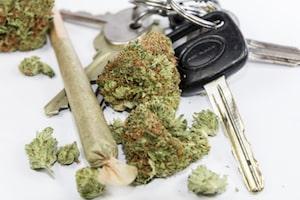Can I Be Charged With DUI When Using Marijuana in Connecticut?
 The United States has a long and complicated history with cannabis. Back in colonial times, hemp - which is a non-intoxicating strain of the cannabis plant - was a very important crop for early settlers. Virginia even passed a law in 1619 requiring every farm in the colony to grow hemp. By 1937, the Marijuana Tax Act was passed and effectively banned the sale and use of marijuana, though the act was replaced by the Controlled Substances Act in the 1970s.
The United States has a long and complicated history with cannabis. Back in colonial times, hemp - which is a non-intoxicating strain of the cannabis plant - was a very important crop for early settlers. Virginia even passed a law in 1619 requiring every farm in the colony to grow hemp. By 1937, the Marijuana Tax Act was passed and effectively banned the sale and use of marijuana, though the act was replaced by the Controlled Substances Act in the 1970s.
Now that 10 states and the District of Columbia have legalized recreational marijuana, and 33 states have legalized medical marijuana, the prevalence of marijuana-related DUI is of concern to lawmakers across the country. In the state of Connecticut, medical marijuana is legal, but recreational marijuana is not legal - yet.
Current Connecticut Marijuana DUI Laws
Like most states, Connecticut’s laws concerning DUI mostly refer to alcohol, but they do mention drugs as well. According to Connecticut law, operating a vehicle while under the influence of an intoxicating drug is illegal. Penalties for a drug DUI can vary, depending on the circumstances of the case. For a basic DUI charge of operating a vehicle while under the influence of marijuana, a conviction can get you up to a six-month jail sentence, $500 to $1,000 in fines, and a 45-day driver’s license suspension, with the requirement that an ignition interlock device be installed in the driver’s vehicle for one year after the conviction.
Testing for Marijuana Intoxication
While there are laws governing the use of marijuana and other intoxicating drugs while driving a motor vehicle, it is difficult to test for marijuana intoxication. For alcohol, a simple breathalyzer test can determine a person’s blood alcohol concentration within a few seconds, and a person is considered intoxicated if they are above the legal limit of .08%. However, there is currently no certified, simple test that does the same for marijuana, and in Connecticut, there is no specified legal limit for what is considered intoxication by marijuana.
Drivers who are suspected of driving under the influence will be asked to take a breathalyzer test. If the test results do not match up with the level of intoxication the officer believes they have observed, then the officer can request that the driver take a second test, which is either a blood or a urine test. Neither the blood or urine tests are very accurate when it comes to marijuana detection. THC, the active ingredient in marijuana, is stored in fat cells, meaning a blood test might not be an accurate reading of the THC in a person’s body. Urine tests are not perfect either, as the rate of THC metabolization can vary significantly from person to person. Due to these factors, a prosecutor may be unable to prove that a driver was under the influence of marijuana.
Contact a Knowledgeable Hartford, CT DUI Defense Attorney Today
For many Americans, medical marijuana is a therapeutic way to treat their ailments. While medical cannabis is legal in Connecticut, and the legalization of recreational marijuana is being considered, it is still illegal for citizens to operate a vehicle while under the influence of marijuana. If you have been charged with a DUI related to marijuana use, you need the help of a skilled Connecticut marijuana DUI defense lawyer. At the Woolf & Ross Law Firm, LLC, we can help you build a strong defense against marijuana DUI charges. Call our office today at 860-290-8690 to set up a free consultation.
Sources:
https://www.theday.com/article/20190218/NWS01/190219437
https://www.cga.ct.gov/current/pub/chap_248.htm#sec_14-227a
https://www.courant.com/politics/hc-pol-connecticut-recreational-marijuana-bill-20190118-gitfeoypfbfp7dwoixl2qfdhce-story.html






